Non Toxic Laundry Detergent: The 10 BEST All-Natural, and Eco Friendly Options
Cleaning
January 27, 2021 | Kathryn Kellogg
Last Updated on April 12, 2024
Not all non toxic laundry detergent is made equal. If you want to pick a good, clean laundry detergent that will actually clean your clothes, you’ve come to the right place. These 10 eco friendly detergents are effective and safe — all while protecting the environment.
Many natural laundry detergent brands are only green washed into looking eco friendly, or are simply soap disguised as laundry detergent. However, you can have safe laundry detergent that’s good for you, good for your washing machine, good for your clothes, and good for the planet. There’s a misconception that non toxic laundry detergent doesn’t work as well as traditional detergent, but I’m sharing 10 brands that prove that misconception wrong!
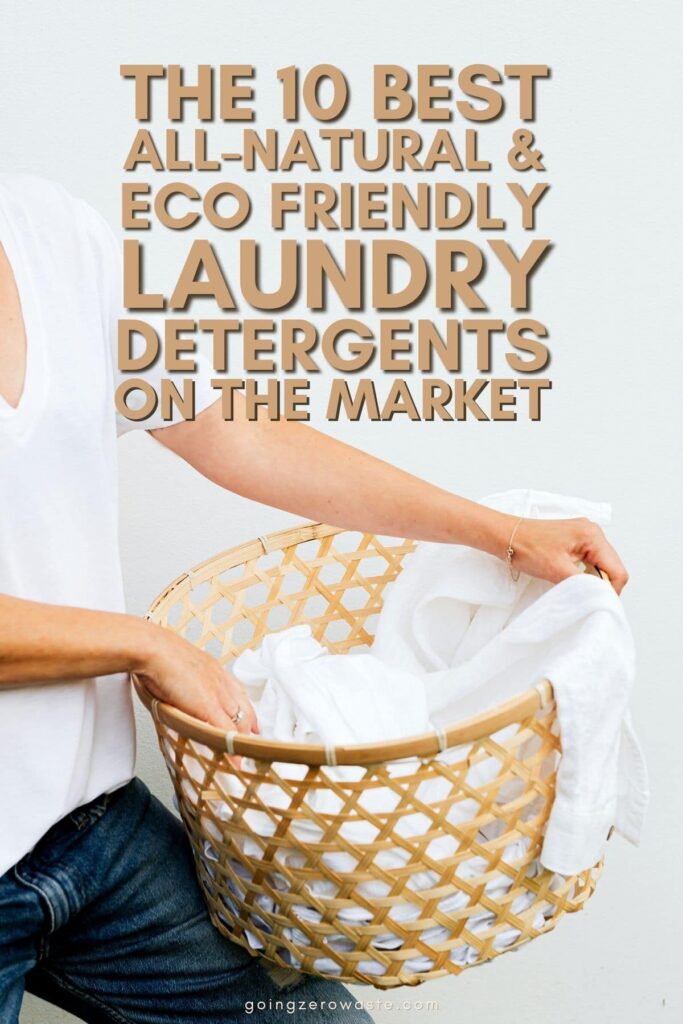
Some of the links below may be affiliate links. For more information please see my disclosure policy.
Table of Contents
non toxic laundry detergent
In my experience, a lot of eco friendly laundry detergents are actually just laundry soap. And trust me, that can end up ruining your clothes. For more information see my blog post Why You Should NEVER Make Homemade Laundry Detergent.
On the flip side, you also have to be careful with conventional detergents. Many contain questionable ingredients that are harmful to human health and the environment.
A lot of traditional detergents contain phosphates which build up in waterways and lead to eutrophication – big algae blooms that can deplete the water of oxygen and kill off fish.
Thankfully, there are eco friendly laundry detergent brands out there with both safe ingredients and mindful packaging that will actually clean your clothes!
natural laundry detergent in a healthy laundry routine
Before we get into laundry detergent, it’s important to chat about the overall idea of creating a more eco friendly laundry routine. We all know that fast fashion is one of the top polluters, but did you know that 39% of a garment’s environmental impact comes from washing, drying, and consumer care?
One of the best ways to have a positive environmental impact is to take better care of the clothing we own. That starts with wearing, repairing, and washing every item less.
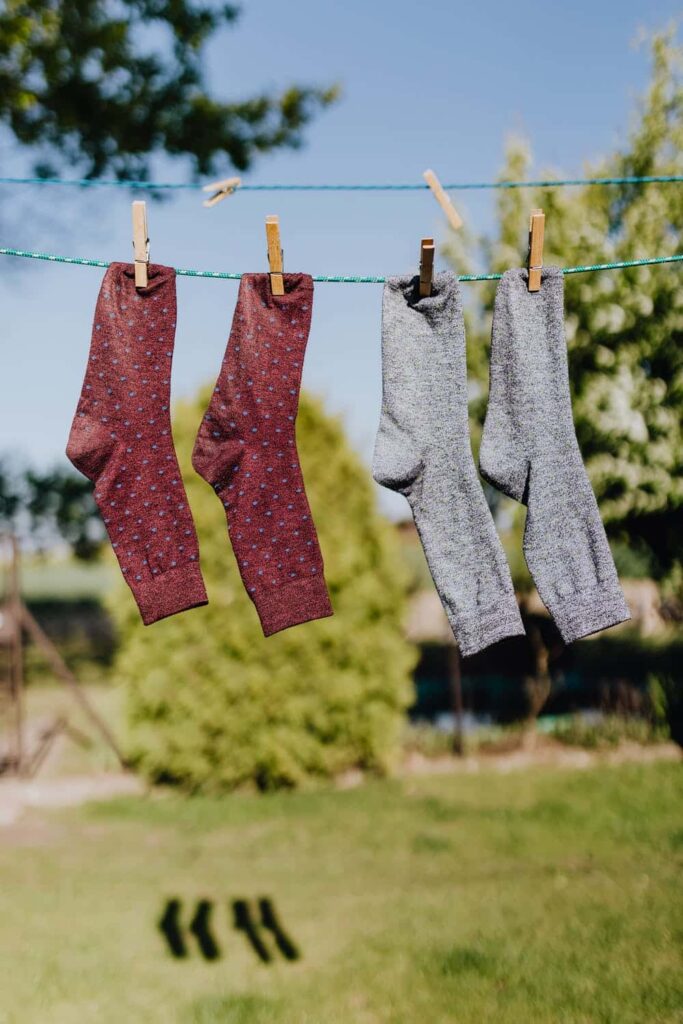
wash less:
In addition to using a safe, natural laundry detergent, you should only wash your clothes when they’re actually dirty – not after every wear. The average American runs anywhere from four to five loads a week, and that’s a lot of water to waste.
I always recommend washing socks, underwear, and really sweaty workout gear after one day of wearing, but everything else is subject to a smell test.
If my shirt or dress doesn’t stink I simply air it out overnight and then hang it up. Airing out clothes allows oxygen to surround the item, which keeps fabric fresh and ready to be put back in a drawer or closet.
It’s also important to note fabric type. Synthetic fabrics hold on to scents longer and have to be washed more frequently, unlike natural fibers like wool, merino, and linen which are naturally antimicrobial and antibacterial.
Most of my wardrobe is made up of natural fibers, so I don’t have to worry about microplastics in the wash and I don’t have to do laundry as often. Talk about a win-win!
So, whether you’re looking for a new piece at a thrift store or a sustainable fashion brand — check out fabric composition!
hang your clothes to dry:
The energy use of a dryer can vary between 1800 watts to 5000 watts, but a typical dryer uses about 3000 watts. By leaving your clothes out to dry, not only are you saving all that energy from being wasted, but you’re also extending the life of your clothes!
Dryers are really harsh on clothing. They may be worse than harsh detergents. Tumble drying can change the texture of your clothing, plus cause it to shrink, fade, and even lose strength.
Researchers washed and dried cotton towels for 20 cycles, and they lost 50% of their strength! After only 20 cycles, the fabric became twice as easy to tear! (source)
Moral of the story: By washing less and air drying, you can easily extend the life of your clothing — which saves you money as well as improves the health of the planet!
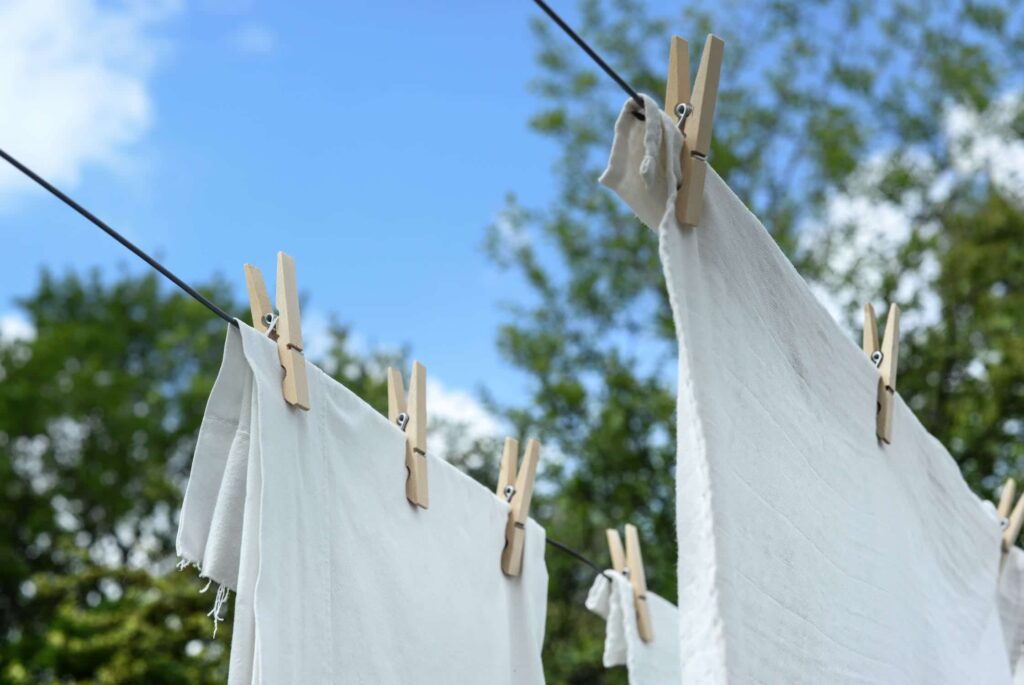
wash in cold water:
Most detergents, including clean laundry detergents, have specifically been formulated for washing in cold which is a great way to reduce your energy cost. It’s estimated that 75 to 90 percent of all the energy your washer uses goes into just warming the water.
If all washes were done in cold water, the energy saved would be equivalent to the annual electricity use of 3.7 million American homes!
avoid microplastics
Microplastics are a big issue in laundry too: Any synthetic clothing you have is likely to shed microfibers with each wash, which enters our waterways. It’s a good idea to invest in a Cora Microfiber Laundry Ball. It’s specifically designed to catch microfibers and is made from recycled plastic.
ditch dryer sheets:
When you do need to throw a load in the dryer, I can’t recommend wool dryer balls enough. They replace disposable dryer sheets, reduce wrinkles in clothes, and can be used for up to 10,000 loads. They also reduce dryer time and soften fabrics over time.
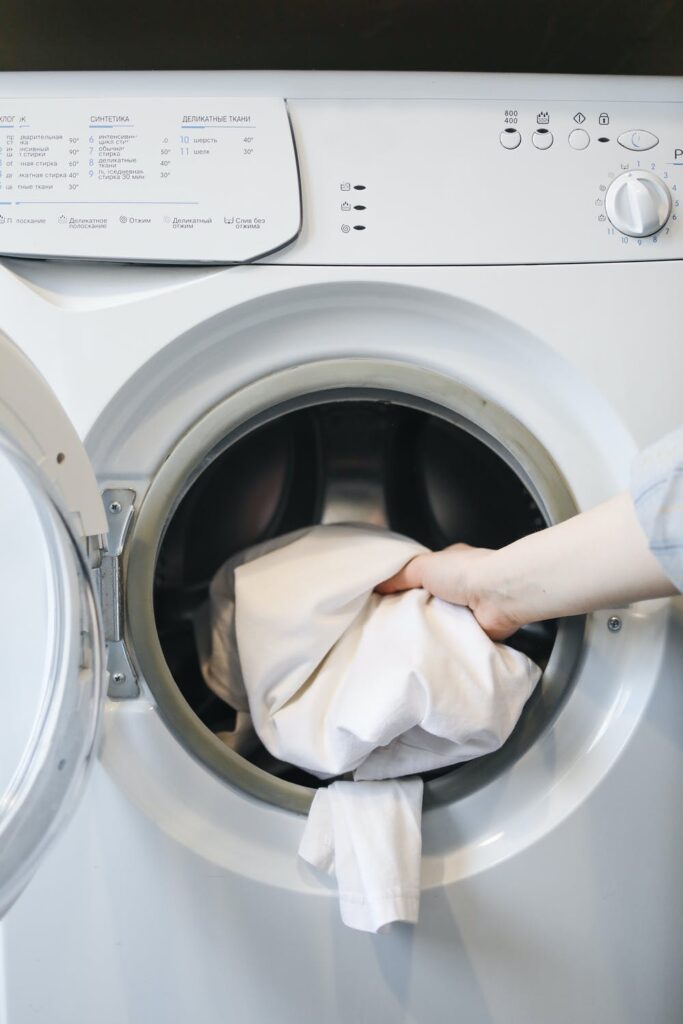
ingredients to avoid in laundry detergent:
No matter what kind you get, there are a few ingredients you should always stay away from. If you see these in a detergent — it’s a little red flag!
- phosphates: When these enter waterways, they cause eutrophication — mineral poisoning that causes die-off in marine animals.
- formaldehyde: Increases your risk of cancer. The EPA calls it a class B1 probable carcinogen that causes acute toxicity when it comes in contact with skin.
- dyes: These don’t add any cleaning power and can cause irritation. Many are proven carcinogens and almost all are endocrine disruptors.
- chlorine bleach: A lung and skin irritant that can cause blindness, burning of the eyes, respiratory failure, and fluid in the lungs.
- sodium lauryl sulfate and sodium laureth sulfate: Inflames the skin, eyes, and lungs.
- optical brighteners/ uv brighteners: Eye, skin, and lung irritants that are toxic to aquatic life, may spontaneously combust, and cannot be in the presence of static electricity.
- fragrance: Artificial fragrances can cause allergic reactions, chemical sensitivities, and rashes.
- ammonium sulfate: An additive so toxic the requirements for use are to never allow the chemical or its containers to reach waterways. Classified as a category 3 oral, respiratory, and skin toxin.
- dioxane: Its liquid and fumes can spontaneously combust. It’s a known carcinogen, and it causes skin, eye, and lung inflammation.
- nonylphenol ethoxylate: Leads to extreme aquatic toxicity. Prolonged exposure may cause cancer and reproductive disorders, in addition to damaging the eyes and skin.
- dichlorobenzene: This has an immediate toxic effect on aquatic life that can poison waterways for years. It irritates the nose and throat. Causes coughing and wheezing, along with headaches, dizziness, and even vomiting.
- benzyl acetate: When inhaled or spilled on the skin, it attacks the nervous system as well as the kidneys.
- ammonium quaternary sanitizers: This ‘cleaning additive’ is corrosive and causes eye, lung, and skin damage.
anything I should look for?
There’s a lot of green washing in packaging and labeling, but your best bet is to look for products that are labeled organic or biobased. These products will most likely be the most trustworthy and ensure you’re getting a safe product for both yourself and the planet.

beware of soap!
Lots of eco friendly “detergents” on the market are actually just soap — and they can do more harm than good in the long run. It’s important to know the difference between real laundry detergent and just laundry soap.
The main difference between detergents and soaps is that detergents don’t use fats and oils, which is very important if you don’t want to ruin your clothes. Soap buildup will occur in your clothing, which attracts and traps dirt — the exact opposite of what you want.
This is a big reason why you shouldn’t use homemade laundry detergent, or any eco laundry soap masquerading as “detergent.”
why gzw recommends pods/sheets
You may notice in the laundry detergent suggestions below that some brands use pods and sheets. This may seem counterintuitive, considering polyvinyl alcohol (PVA and PVOH), a type of plastic, are found in both detergent pods and sheets. But lets discuss this for a moment.
A new bill nicknamed Pods are Plastic was recently introduced by a New York City council member that would ban laundry and dish detergent pods.
However, the study that backs up this bill was funded by Blueland, a company that doesn’t use PVA. I’m always a bit skeptical of studies funded by a brand so that said brand comes out looking better.
So, it begs the question: Is PVA/PVOH toxic like the study suggests? EcoCult has an excellent article that goes in depth on this topic, but here are some highlights from it:
- PVA/PVOH is used to make pill capsules — aka the material that encapsulates your health supplements — and eye drops. And it is regarded as safe for oral consumption, plus is considered biodegradable by the European Chemicals Agency, the EPA, and Nordic Ecolabelling.
- The EPA says there’s plenty of evidence that PVA is safe and that the evidence presented (aka studies on microplastics in general and the Blueland-funded study estimating the amount of PVA going into the environment) doesn’t demonstrate that PVA is not safe.
- EcoCult emailed Scientist Mike Belliveau, the co-founder of the advocacy organization Defend Our Health, in regards to this debate. He wrote, “I think that EPA’s conclusion is sound…that the available scientific evidence suggests that the form of polyvinyl alcohol used in some detergent and laundry pods is highly water soluble, does not form microplastics, likely biodegrades readily in the environment, does not bioaccumulate, and is relatively low toxicity.”
In other words, PVA/PVOH doesn’t have the negative qualities of typical plastic. With this in mind, you can enjoy your laundry sheets and pods. Just remember – what truly matters is the detergent inside of them!
gzw approved clean laundry detergent
So, now you know that you’re looking for a safe, eco friendly, non toxic laundry detergent.
If your head is spinning from all this information, don’t fear. I’ve rounded up a list of safe laundry detergent brands that get the Going Zero Waste seal of approval. All these brands are actual detergents that are tough on stains but gentle on the planet (and your skin!)
I’ve gone ahead and highlighted some of my favorite features of each brand, but it isn’t an exhaustive list. Be sure to check out their websites for more information.
top 10 eco friendly laundry detergent brands
1. earth breeze:
- Laundry strips
- Biodegradable packaging + ingredients
- Hypoallergenic, vegan + cruelty-free
- 40,000+ 5-star reviews
- 100% money-back on subscriptions
- 40% off when you subscribe
- 30+ million loads donated, Buy 10, Give 10 Program
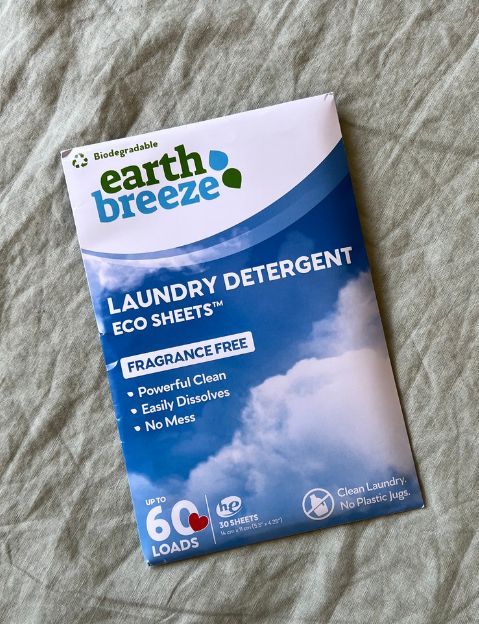
2. hey sunday:
- Laundry strips
- Biodegradable packaging + ingredients
- Contains 7 different cleaning surfactants and an enzyme (compare to top competitors’ 2 surfactants)
- 3rd party tested 100% phthalate, phosphate, 1,4 dioxane, bleach, + dye free
- Hypoallergenic, vegan, + cruelty free
- Use ZEROWASTE15 for 15% off
/ HEY SUNDAY /
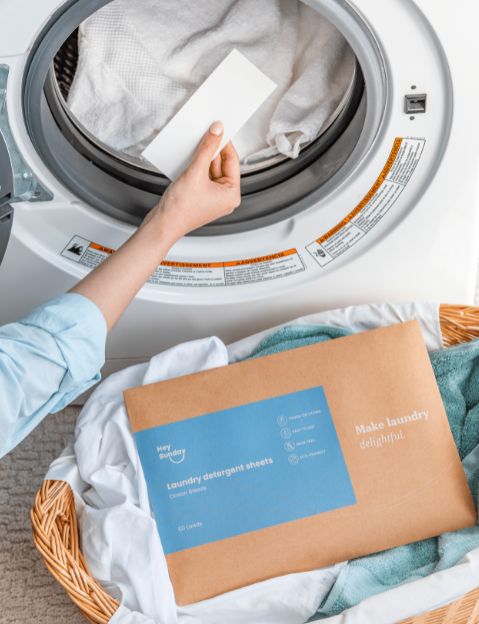
3. ecoroots:
- Laundry strips
- Compostable/recyclable packaging
- Hypoallergenic, vegan + cruelty-free
- Biodegradable
- Use Kathryn10 for 10% off your order
/ ECO ROOTS /
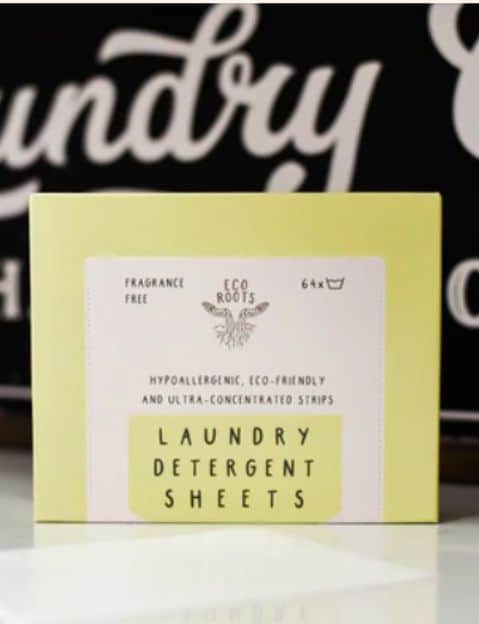
4. dropps:
- Laundry pods
- EPA safer choice certified
- Plant-based ingredients
- Cruelty-free
- HE safe
- Carbon neutral shipping
/ DROPPS /
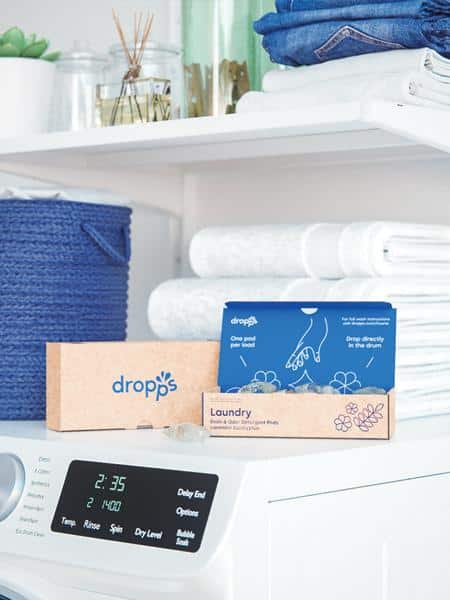
5. pur home:
- Liquid detergent
- Black and woman owned business
- Plant-based ingredients
- Leaping Bunny Certified
- HE safe
- Zero waste refill program
/ PUR HOME /
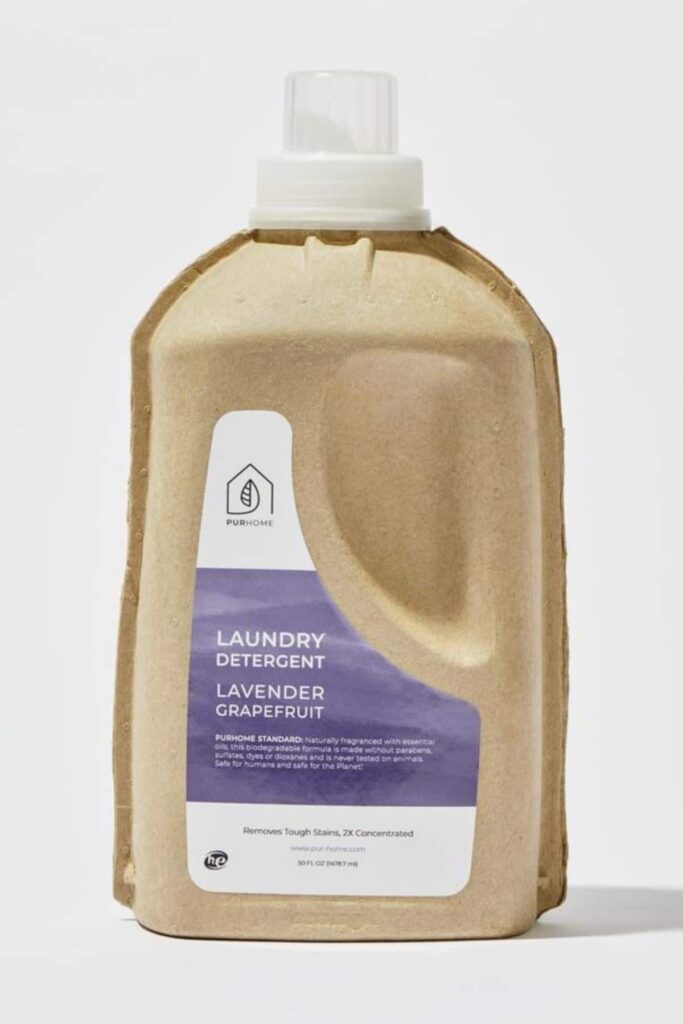
6. cleancult:
- Liquid detergent
- Plant-based ingredients
- Leaping bunny certified
- HE safe
- Carbon neutral shipping
- Refill program
/ CLEANCULT /
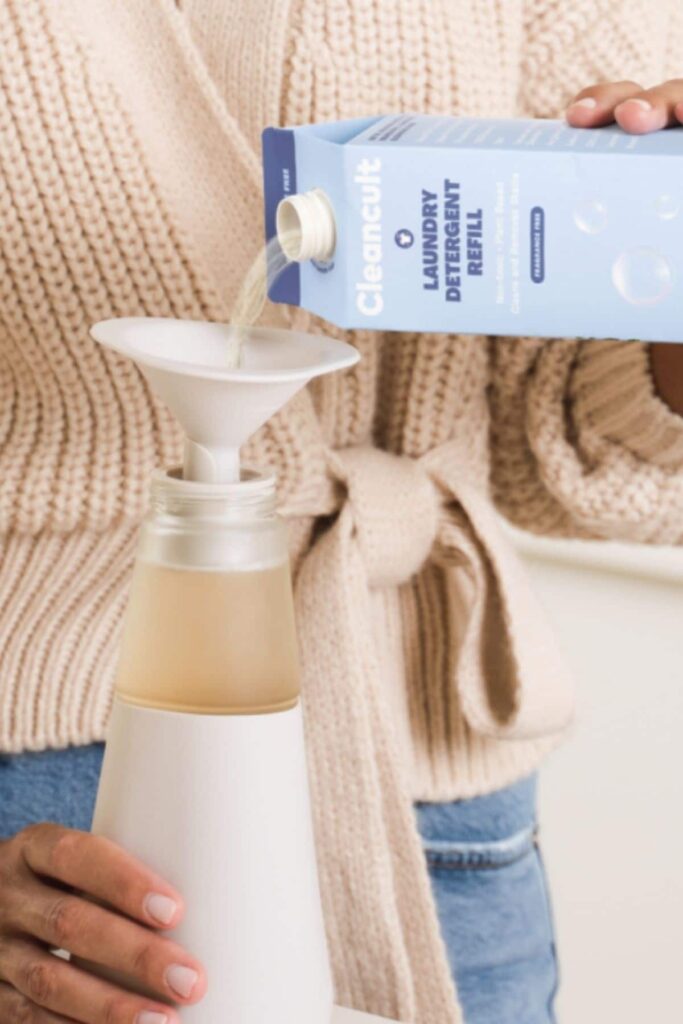
7. blueland:
- Laundry tablets
- Plant-based ingredients
- Leaping bunny certified
- HE safe
- USDA BioPreferred
- Plastic free refill program
/ BLUELAND /
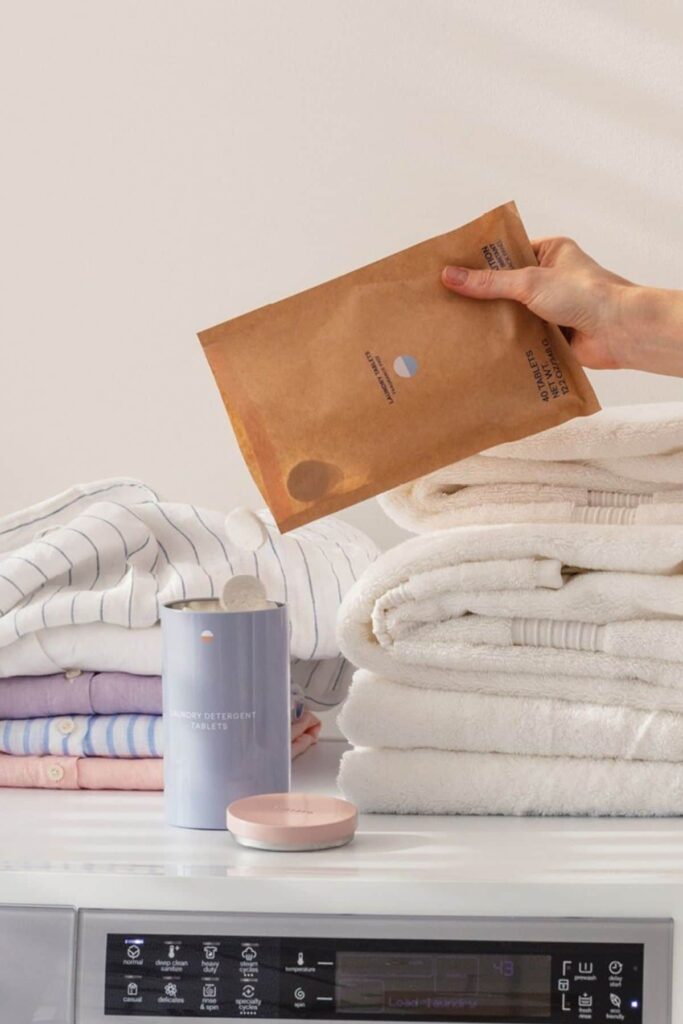
8. tru earth:
- Laundry strips
- Certified hypoallergenic
- Cruelty free
- HE safe
- Biodegradable
- Plastic free
/ TRU EARTH /
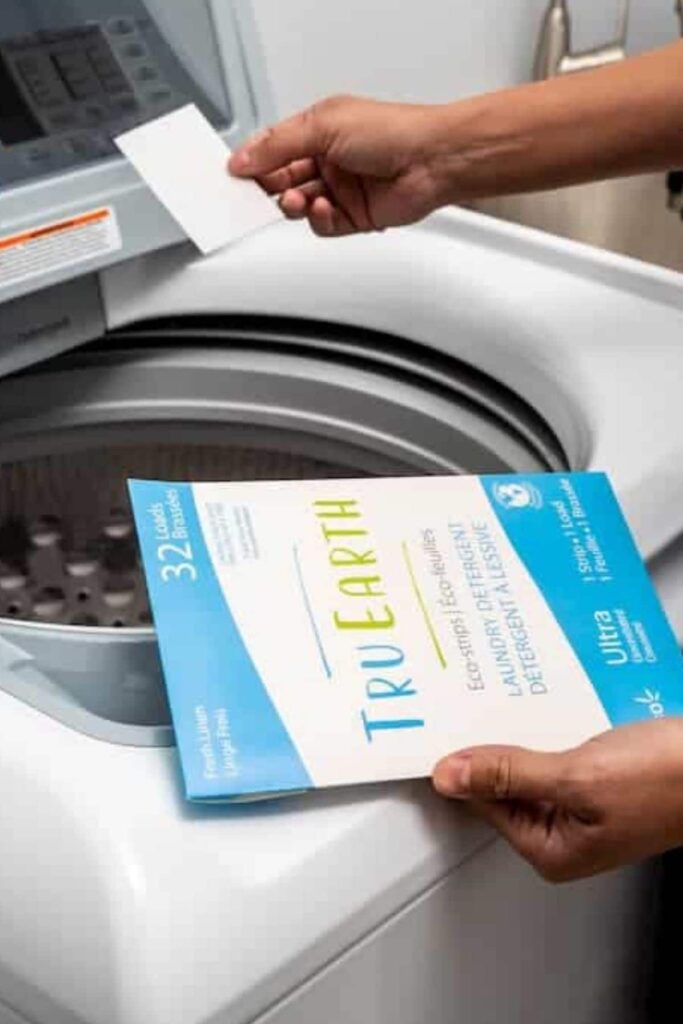
9. biokleen:
- Laundry powder & liquid detergent
- Plant-based ingredients
- Cruelty free
- HE safe
- Renewable energy offsets purchased for production
- 100% recycled cardboard box
/ BIOKLEEN /
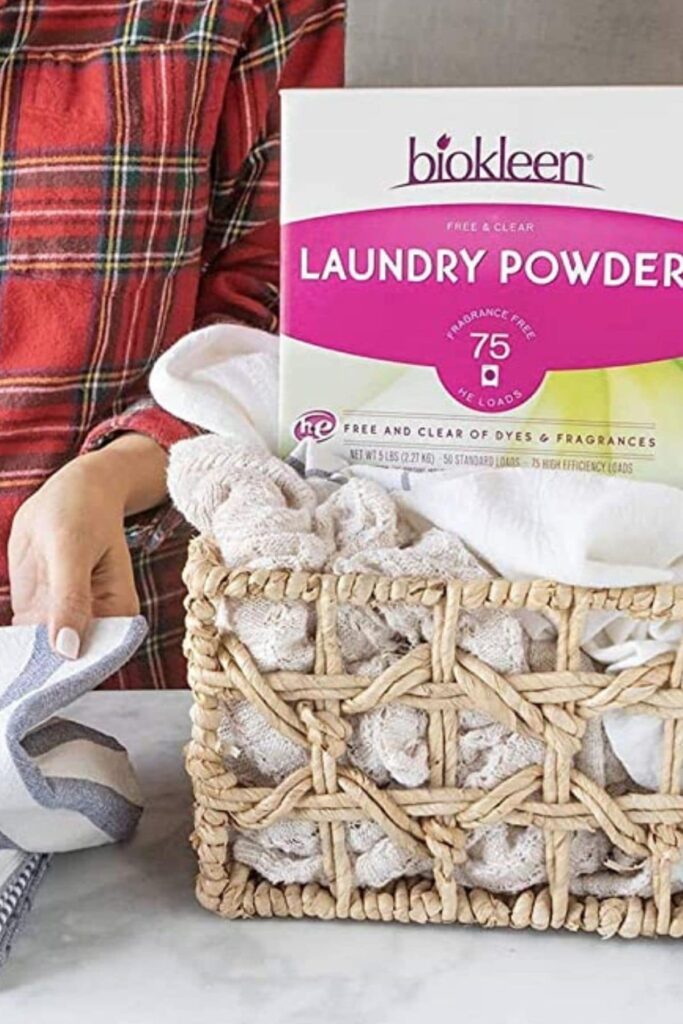
10. grove collaborative:
- Liquid detergent
- Plant-based ingredients
- Cruelty free
- Certified B Corporation
- Refill program available
- Carbon offsets for each shipment
- Plastic neutral
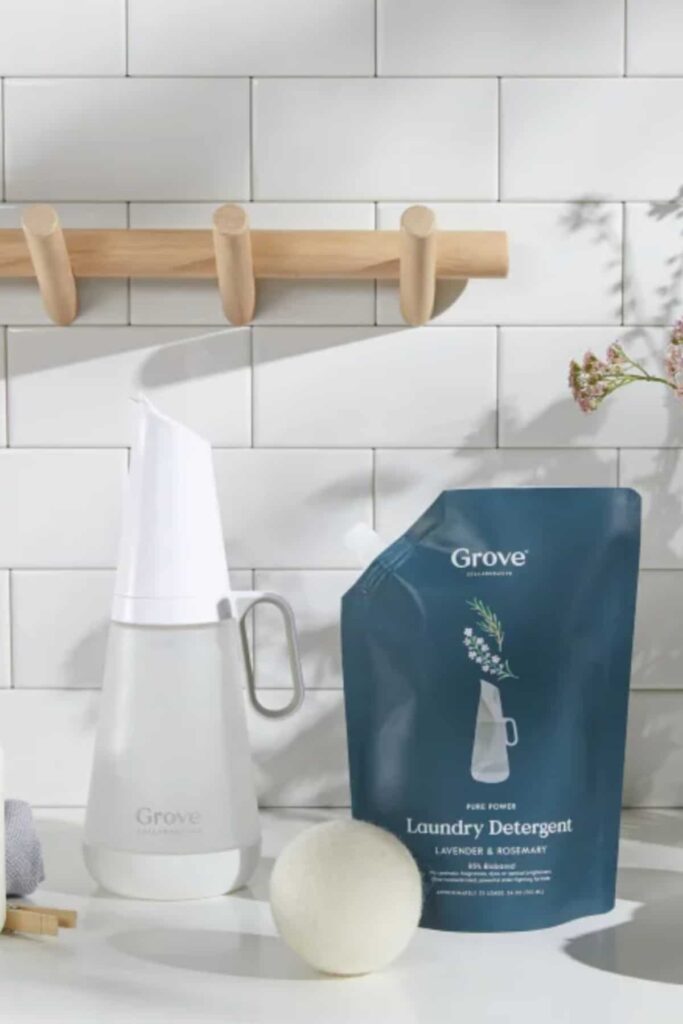
11. seventh generation:
- Liquid detergent
- Plant-based ingredients
- Leaping bunny certified
- Certified B Corporation
- USDA certified biobased product 96%
- Post-consumer recycled plastic
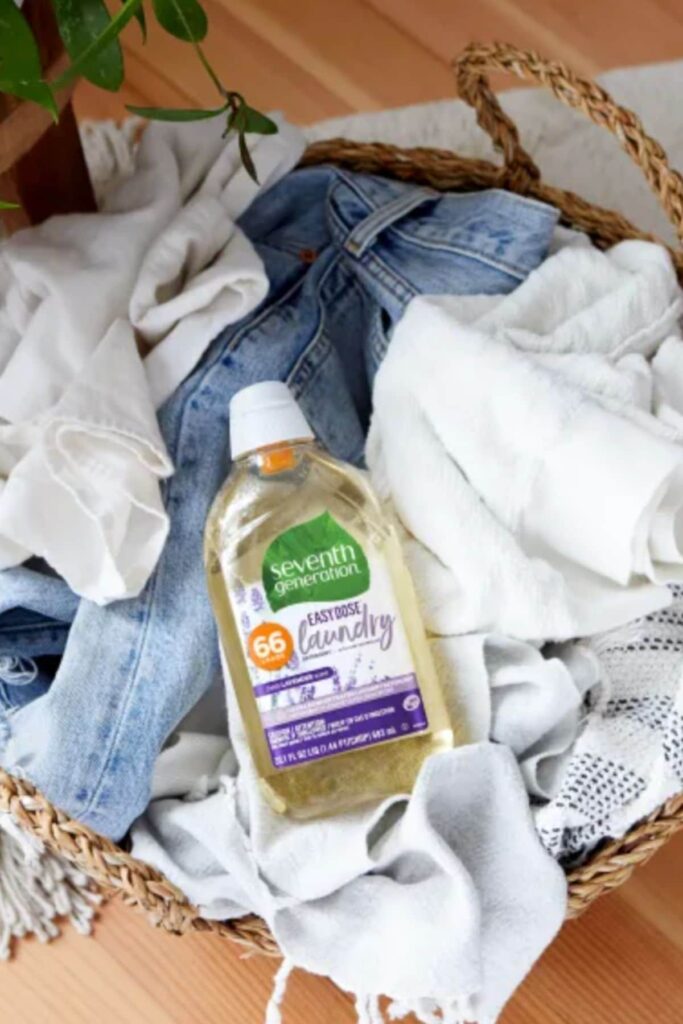
12. ecos:
- Liquid detergent, strips, and pods
- EPA safer choice certified
- Leaping bunny certified
- HE safe
- Facilities are run on 100% renewable energy
- TRUE Platinum Zero Waste certified
/ ECOS /
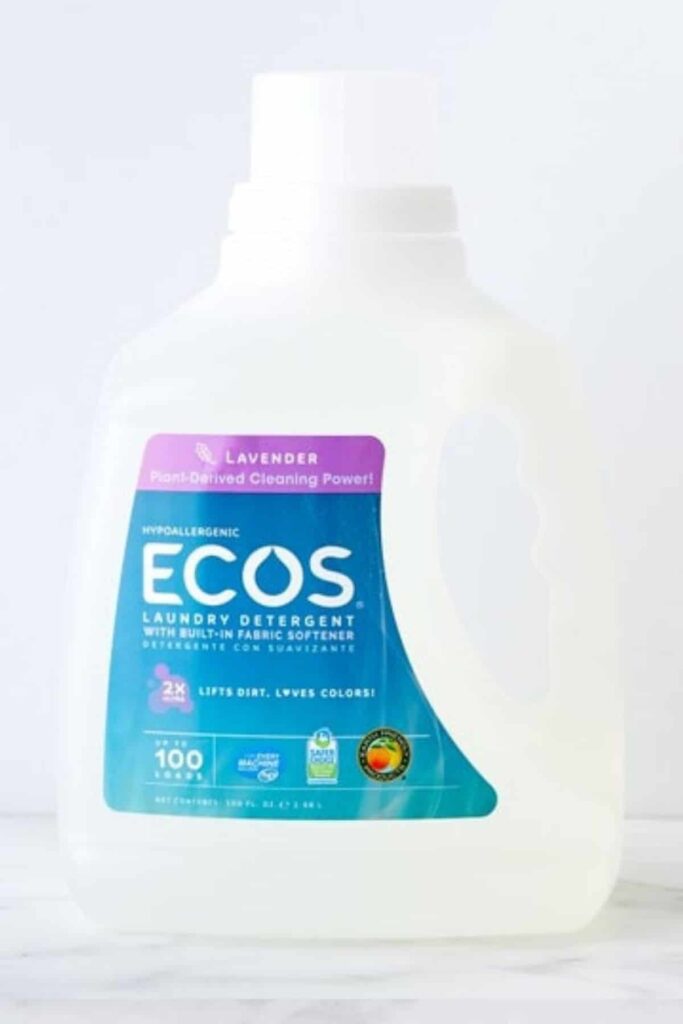
13. ecover:
- Liquid detergent
- Plant-based ingredients
- Cruelty free
- Certified B Corporation
- Bottles made from made from sugarcane and recycled plastic
- Hypoallergenic
/ ECOVER /
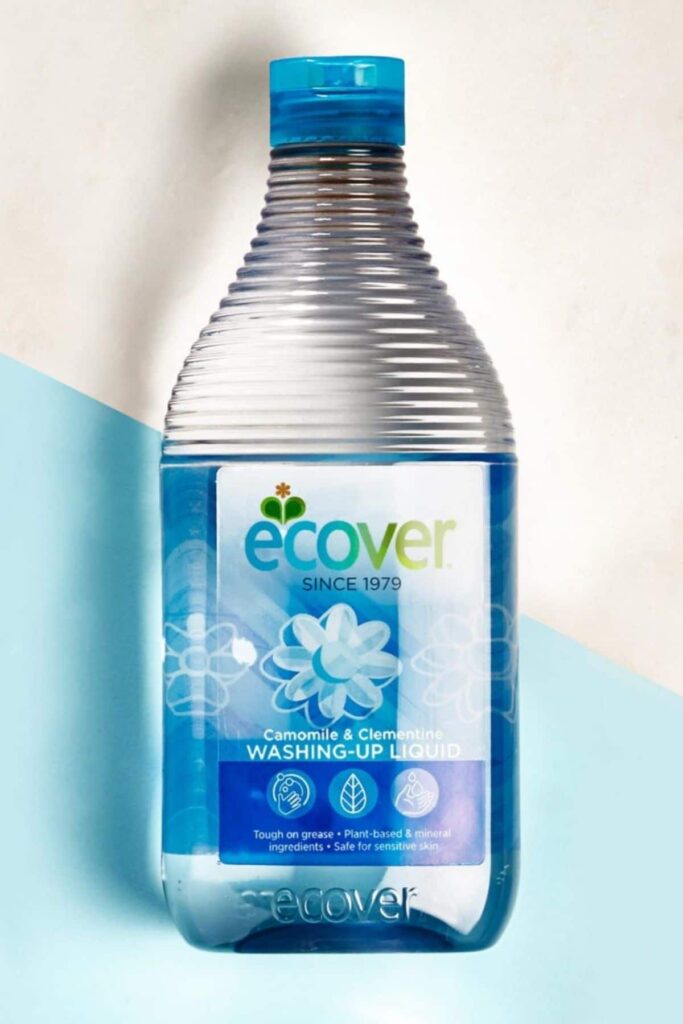
faqs
are non toxic laundry detergent brands more expensive?
They can be, but I’ve actually been surprised to learn how affordable they can be! Many of these brands are more expensive up front, giving a fair amount of sticker shock, but come much more concentrated, which makes their cost per load fairly comparable to the leading brands of detergent. Most traditional detergents are 60-90% water — so what are you paying for, really?
does ‘organic’ mean it’s a safe laundry detergent?
Usually, you can bet that a natural, organic laundry detergent is going to be safe for you, your clothes, and the environment. However, just like you can be allergic to pollen or certain fruits, there’s always the possibility that you’ll react to the ingredients in a natural laundry detergent as well. I always recommend scanning the ingredients for known allergens or sensitivities so you can make educated purchases.
Have you tried any of these eco friendly laundry detergents before?

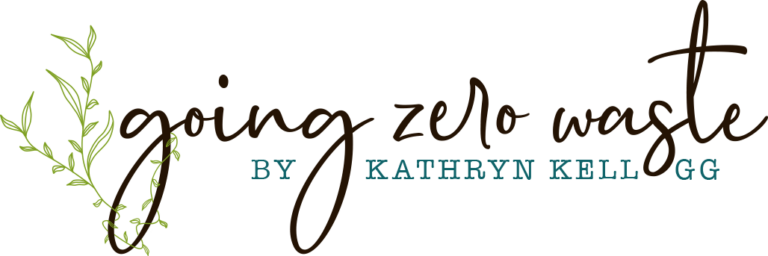
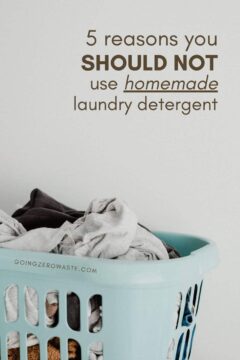
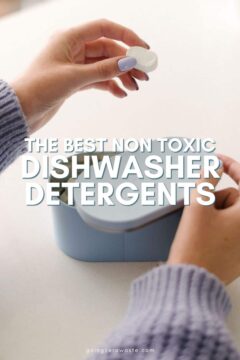
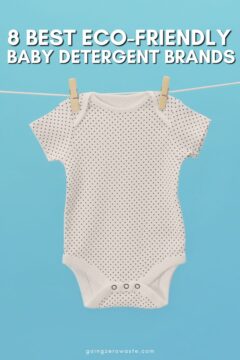
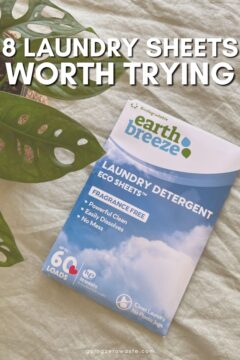

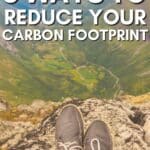
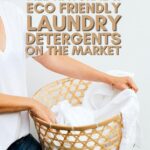

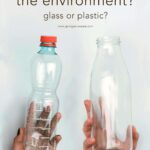
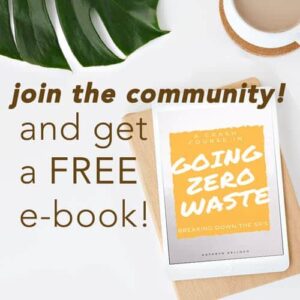

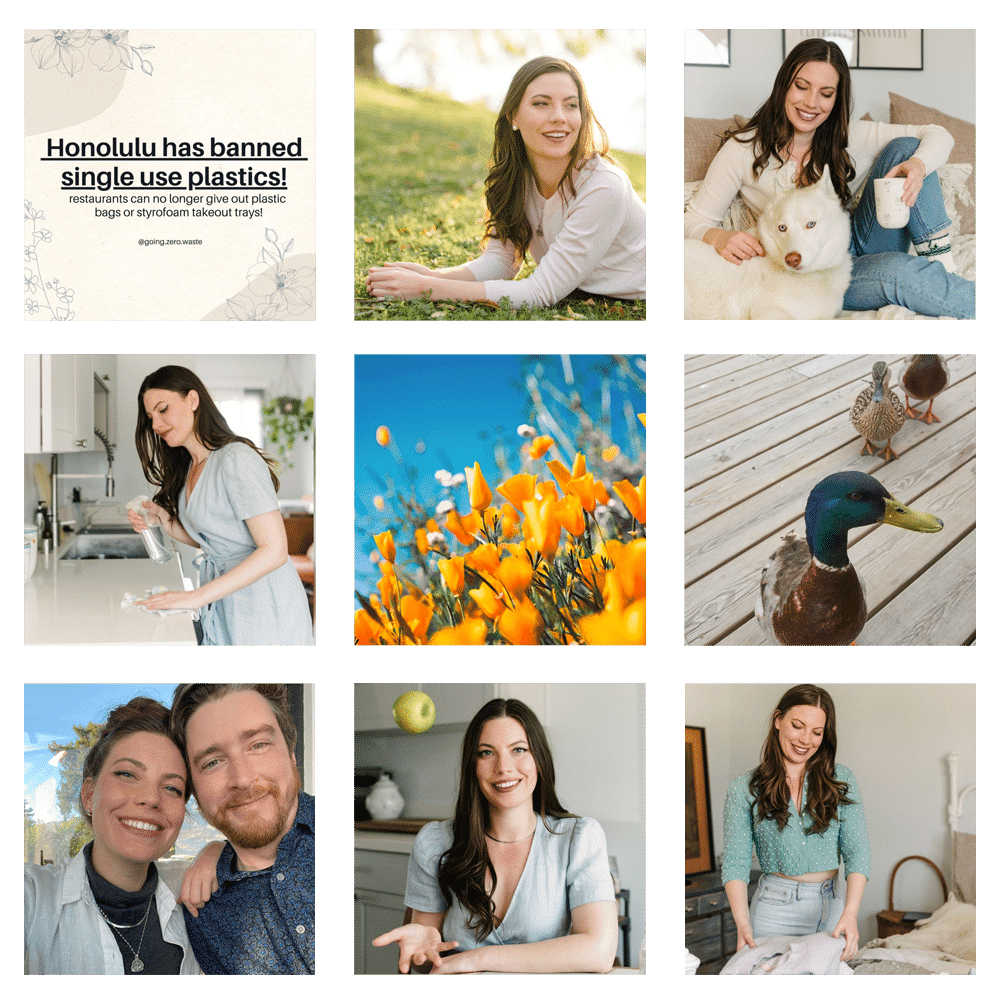
Any one that you would recommend more than others that’s lowest cost for hand washing?
This a great post and list. Im not going to use these plastic bottle anymore. Even if they were made from recycled products, where do they go from there? But do have a rundown of costs for these choices?
This is a great list! I would also love to see a price comparison.
The Ecos laundry strips are not plastic free!!! I bought a box yesterday 3/13/21 and when I opened the cardboard box, they strips are packaged in a plastic container! Extremely disappointed in Ecos. Please make note of this in your review above.
Thank you for this post, it’s really helpful in finding eco-friendly detergents. I also liked how you mentioned more than just detergent, you talked about the whole process which some people may overlook and I will definitely be changing my process of washing. But do you have any more plastic-free options? I’ve noticed even if they are organic and bio-degradable they are still in plastic bottles.
Do you have any thoughts on Dr. Bronner’s Sal Suds Biodegradable Cleaner?
Hi there! Good points. Which detergent cleans the best? I tried Dropps dishwasher pucks and they do not work very well I hesitate to try that brand for clothes. I’m looking at dry detergent (strips, sheets, powder…) as they are greener to ship. Thanks I’m advance!
What do you think of My Green Fills? Have you tried their products.
I’ve tried Blueland and Clean People & think I like Clean People better. I was surprised I didn’t see it on your list! Is there something about it you don’t like? I’d be interested to know as I’m considering trying other brands.
Why are there no replies to the above questions? I would be interested in suggestions and responses. Thank you.
I found this list because I bought the Blue Land tablets, and they did not dissolve in a cold water wash! I like their other cleaners but that sort of defeats the purpose for me on a laundry detergent… Thank you for this comprehensive break down.
Thank you for doing this! I’ve stopped buying plastic bottles whenever possible, and I am trying laundry detergent sheets. So far it’s been a negative as I first tried Earth Breeze. (They had the cutest commercials.) Earth Breeze doesn’t work as well as Tide, but I expected that. What I did not expect was to see a tiny “made in China” on their package. So disappointed! Next up is Tru Earth, which is made in Canada. I can live with that. I’d love to know if anyone else has started on this journey and been wowed by any particular product? Or… Have you seen a side-by-side comparison of laundry detergent sheets by price and features – cruelty-free, plastic-free, H-E, biodegradable, hypoallergenic, etc.
Could you please also advertise which companies can ship to US Military APO, FPO, and DPO addresses? Its so helpful for military and there arent alot of companies that ship to outside US.
What about Clean People laundry detergent? I have read that it is Eco friendly, comes in strips so no plastic, and cleans well.
Hello
My mother wants to use the laundry water to wet her plants. I like that too, but I tell her that we need to use a laundry detergent that is not toxic to plants and the soil. That’s why I’m interested about earth friendly detergents. Which one do you recommend ?